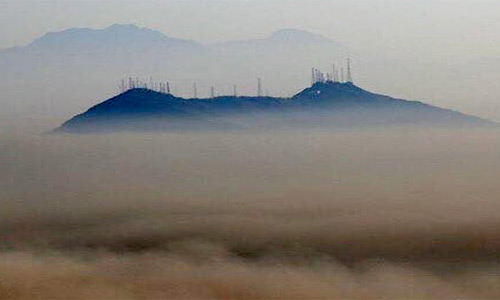In the eve of winter seasons, Kabul residents are concerned about air-pollution emitted as a result of heating household in the winter season. In past years, coal fuel pollution was blamed for more deaths than causalities inflicted by imposed war in the country. The most vulnerable groups of people which are victimized by pollution are children who easily developed chest infection. The children who belong to poor families are more vulnerable than others, especially those who need to collect garbage from dump yards for cooking and heating households. For example, when we cross from Kabul River, there are always some children who carry a large bag collecting pieces of plastic, woods and paper for heating their households. These children are also exposed to heavy traffic fumes; according to experts, they will have smaller lungs, unhealthy brain and will be more vulnerable to respiratory and heart diseases in their later years. It means, if we ignore the issue now, we are storing up a health time-bomb for the future, guaranteeing that hospital wards will overflow of wheezing people with hearts and lungs permanently damaged just by living in cities. The vast costs to the economy of caring for an increasingly infirm older population will have to be met later.
In general, with entering winter seasons, the numbers of patients are increased in hospitals, especially in children hospitals. For example, report quotes from Indira Gandhi Children’s Hospital, saying the numbers of patients with pollution-related health problems increase in the winter season. It is said that sometimes the numbers of patients are increased three folds in the winter seasons than other seasons. It is also said that the hospital staff place them two to a bed or more because of overcrowded patients. Overall, the majority of patients in hospital ward are young, between 6 months and 5 years old.
there are many factors behind the air pollution such as shortage of electricity and clean energy, uses of substandard materials like unpurified coal, wood and plastic, existence of substandard factories, especially brick factories and public bath, low quality oil, un-asphalted roads, old cars, overpopulation issues and lack of urban living culture in large cities, especially Kabul. But the coal fuel which is vastly used by families, factories and public baths are the main factor of pollution in winter season. In winter seasons, the vast majority of people burn coal and wood to heat their homes – a move that seriously impacts the quality of air. However, the National Environment Protection Agency (NEPA) has recently announced a five year plan to fight against air pollution in the capital city of Kabul city.
In 2017, the President issued an order stating any person found guilty of committing major pollution-related crimes can face between 16 and 20 years in prison. The legal order also states that if inspectors fail to enforce the law they can also face imprisonment or a fine of up to AFs60,000 while an offender, whose actions have led to the death of a person, can get the death penalty. According to the Criminal Act pertain to environmental crimes, Section 838, states that a person who deliberately throw toxic substances and waste, of mercury or other matter harmful to the public health’s - especially in wells, water tanks, public storage facilities or other unauthorized sites - can be sentenced to prison.
Undoubtedly, the NEPA and government officials has made many efforts in last few years but the main problem is that no one has provided a good alternative to pollution producing factors. As aforementioned, with the arrival of fall and summer season, the Kabul residents start burning large amount of unpurified coal producing a huge amount of smoke in sky of the city while there is no another option for the people other than using coal. Coal fuel is relatively cheap and everyone is able use it for heating households, but it produces a lot of smoke and pollution in the winter seasons.
In order to overcome the long persisting issue, both the people and the government need to adopt necessary measures to fight against the deadly issue. In large cities, many of people, especially those who came from villages should trouble themselves to put their rubbish in rubbish bins or specified spot. Therefore, we need to raise awareness and promote the culture of urbanization and overall cooperate with government but government is more responsible to develop a comprehensive strategy using immense experience accessible in today’s world.
In first place, the government needs to improve the urban service system which is the main cause for over than 70% of pollution in large cities. This consists of: waste management, transportation, old car control, ban on low quality fuel, control of voice pollution, standardization of telephonic-waves and so on. Secondly, the government has to pave the way for purification of coal or look for alternatives as it is blamable for huge a part of pollution especially in winter seasons.
The typical alternatives are gas and electricity but people cannot afford to use due to high cost. One kg gas in Kabul is 60Af while one can buy 7kg of coal by this amount. So, the tax on imports of gas need to be reduced, the distributing cost must be monitored and likewise price of electricity should decrease. In longer term, the promotion of greenery and forestation is very important for healthy environment. Both individuals and government must take part in planting trees throughout the country, especially in large cities.
Home » Opinion » Health Concerns over Rise of Air-Pollution in Winter Season
Health Concerns over Rise of Air-Pollution in Winter Season
| Mohammad Zahir Akbari

